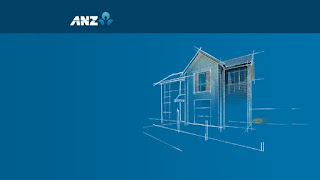Home loans grow again in December, but not for ANZ
Despite pledges late last year that the bank will return to growth this half, Australia and New Zealand Banking Group's mortgage market troubles worsened in December.
According to data from the Australian Prudential Regulatory Authority, ANZ fell 0.1 percent in the owner-occupier housing market in November and experienced the same marginal gain of 0.1 percent in investment mortgages.
In November, ANZ chairman Paul O'Sullivan told shareholders that the bank expected its Australian home loan portfolio to increase in the second half of the financial year, and that ANZ's expansion would be in line with system growth.
With a month-on-month gain of 1.6 percent across both investor and owner-occupier mortgages, National Australia Bank led the big four banks. Macquarie Bank maintained its good performance, rising 5.2 percent, while Westpac continued to pull back from investor mortgages, falling 0.7 percent from November.
Despite record high levels overall, RateCity director of research Sally Tindall said investor mortgage growth had decreased across the board.
"The value of investor loans touched another new high this month," she added, "but the pace has noticeably decreased, which could be a hint that some of the market's heat is dissipating."
Overall housing credit expanded at an annualised rate of 8.7% in the three months to December 31, according to Macquarie analysts.
"On a three-month annualised basis, Commonwealth Bank of Australia and National Australia Bank are increasing at 1.3 times and 1.6 times system, respectively, while ANZ is not growing," Macquarie said.
Outside of the majors, Bank of Queensland experienced 1.2 times system increase, owing to ME bank's greater volume growth in the previous month, according to Macquarie.
According to RateCity, banks have boosted their fixed rates by as much as 1% or more in the last year. Banks are expected to migrate to standard variable rates even if the Reserve Bank of Australia leaves the cash rate on hold at 0.1 percent for the remainder of 2022, according to the report.
"Even if the RBA waits until 2023, there's a good chance lenders will raise variable rates anyhow, especially if funding costs continue to rise," Ms Tindall said.
"A succession of interest rate hikes, whenever they occur, are likely to stifle our housing market." Anyone who borrows to their limit would see their budget drop, which could be enough to cool things down, especially in hotspots like Sydney and Melbourne."
Ms Tindall also expressed concern that over a million homes have never had their rates raised.
"It's astonishing to believe that more than 1.1 million households have never seen a cash rate increase," Ms Tindall added.
"Australia hasn't seen an RBA rate rise in more than 11 years," she added, "which means a generation of mortgage holders could be in for a rude awakening when their monthly repayments begin to climb automatically."
As lending conditions tighten, analysts predict that growth in the home loan market will decelerate this year.
"While most individuals will be able to take future rate hikes on the chin, albeit with clenched teeth," Ms Tindall said, "those people who have been badly affected financially by COVID or who haven't seen a fair salary rise in a long time may find it difficult to balance the budget."
"The data suggests that the mortgage market is still thriving, but future rate hikes may cause things to shift."
Conclusion
There's no need to be discouraged if your personal loan application is turned down. To boost your chances of loan approval, simply work on improving your credit report and following the methods outlined above. Once you've completed this checklist, you're ready to submit your personal loan application.To find about the best pricing and deals, call our toll-free number +91-9477079053. They'll help you in every way they can. Please contact me at Best Home Loan In India if you have any more.



Comments
Post a Comment